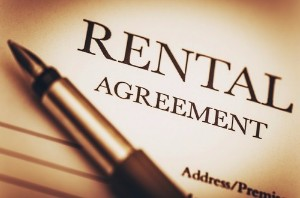 If you do not know this already, a lease is typically a contract or an agreement by virtue of which one party (the landlord) conveys property to another (the tenant) for a specified time, in return for a periodic payment of rent. Drawing up a lease between a landlord and a tenant without the assistance of an attorney can sometimes be a complicated process. Here are a few helpful tips when it comes to leases in New Jersey.
If you do not know this already, a lease is typically a contract or an agreement by virtue of which one party (the landlord) conveys property to another (the tenant) for a specified time, in return for a periodic payment of rent. Drawing up a lease between a landlord and a tenant without the assistance of an attorney can sometimes be a complicated process. Here are a few helpful tips when it comes to leases in New Jersey.
Leases in New Jersey | Written Lease vs Verbal Agreement
Obviously, a verbal agreement is one which has not been reduced to writing and, except for cases regarding payment of rent which the landlord can generally substantiate by keeping written receipts showing the manner in which payment of rent is made, such leases are virtually unenforceable in a Landlord-Tenant Court.If he has not insisted upon a written lease, a landlord’s attempts to evict a tenant for other violations – meaning those which the landlord imposes as violations of the tenancy – will encounter serious challenges.Download Our FREE Landlord Guide
Leases in New Jersey | What to Consider When Creating a Lease
Absent a lease, a tenant is not obligated to abide by any rules or regulations other than the timely payment of rent, so it is a big mistake for any landlord not to have a lease. Many landlords hold to the erroneous belief that a lease somehow helps the tenant; however, that is absolutely false.As a landlord, it is important that you make sure your lease includes specific language that prevents such conduct as having pets, if that is a clause you require your tenants to fulfill. You may also prohibit other behaviors such as smoking or the playing of loud music at times that are after normal hours.You can even set forth clear timetables to govern when the rent is to be collected. Also, if the rent is going to be late, the lease must clearly state when the late period begins. Late charges must be clearly stated in the lease – and they must be deemed to be additional rent. An additional rent clause must be included in every lease because, without an additional rent clause, you cannot seek to recover those charges in Landlord-Tenant Court as part of the rent. It is very important to set forth your expectations of your tenants in unambiguous and specific language.
Leases in New Jersey | What If a Tenant Breaks the Lease?
A landlord whose tenant breaks a lease may avail of several remedies. First, the landlord can file a Civil Action against the tenant in which he seeks payment of rent that would have been paid if the tenant had complied with the lease.The landlord must, however, fulfill his obligation to mitigate the damages. For example, if a tenant breaks a lease with several months remaining in the stated lease term, the landlord cannot simply sue the tenant for the rent that he would have paid. The landlord must first make reasonable efforts to rent the premises, and he must be able to document those efforts. Once the landlord makes and documents that effort – but his efforts prove unsuccessful – he can seek to have the tenant pay all the monies to which he would have been entitled under the lease, if the lease had not been broken.
If you have any questions regarding leases in New Jersey, please contact our experienced Jersey City landlord tenant lawyer today to schedule a free consultation.
